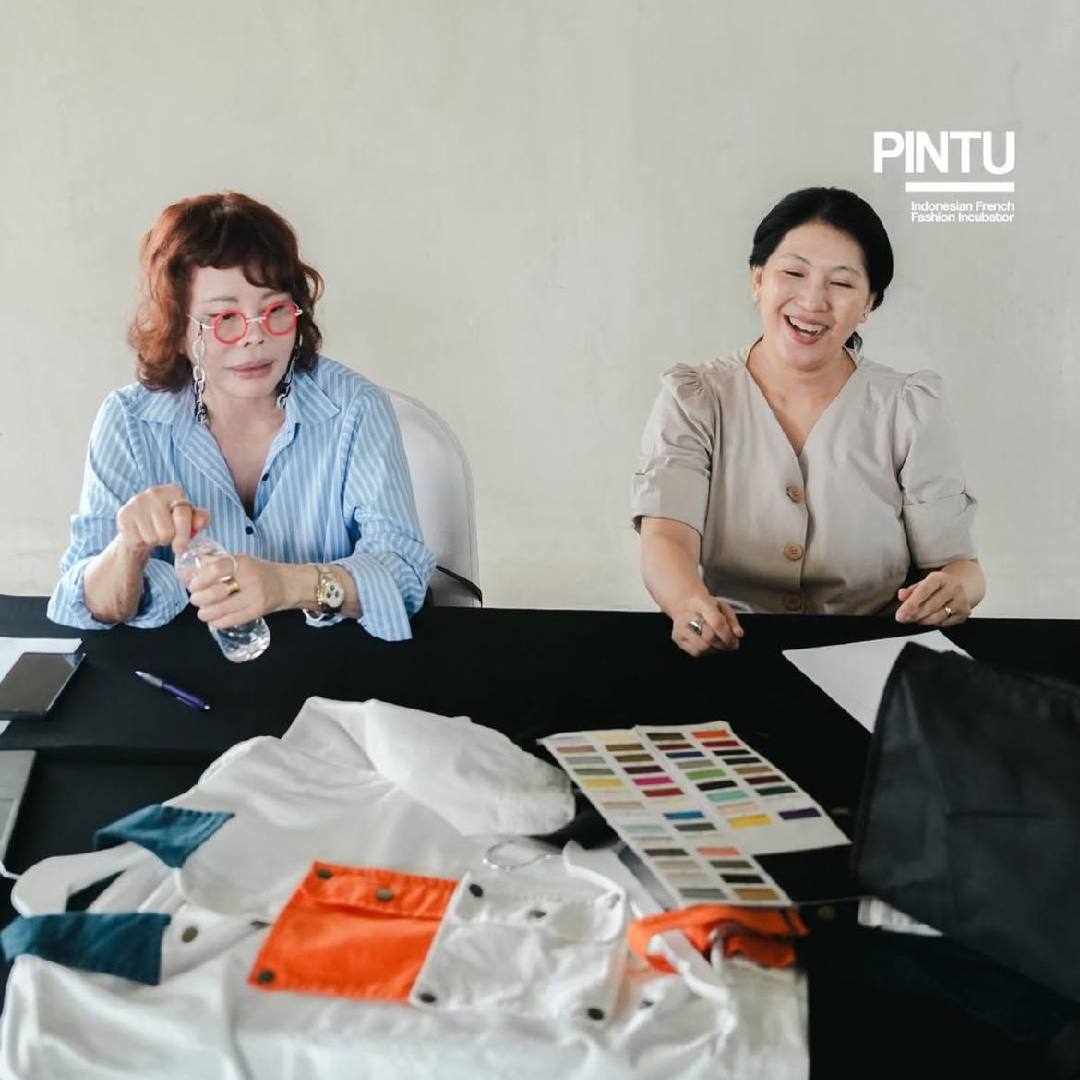13 May 2025
What Happened at PINTU 2025? Here's a 2-Month Recap of the Fashion Incubator Program
Highlight
The PINTU Incubator Program 2025 once again served as an intensive learning platform for selected participants to build a solid foundation for their fashion brands. From March to April 2025, PINTU Incubator welcomed its participants into an intensive two-month program, filled with expert-led workshops, interactive sessions, and hands-on learning. The goal? To help local fashion brands strengthen their business foundations and prepare for both local and global expansion. participants took part in a series of strategic classes designed to strengthen their business, creative, and technical skills—all in preparation for showcasing at the Paris Trade Show. Here’s a complete recap of the impactful sessions that shaped these two transformative months.
The journey began with a powerful business planning session led by Mr. Andreas Kiky and Ms. Nur Amalyna Yusrin. Participants learned to craft a compelling brand strategy that goes beyond aesthetics. The class focused on building a solid foundation — understanding customer needs, identifying core brand values, and embedding sustainability into the business model. Andreas and Amalyna’s combined experience in brand management and strategy helped participants shape a long-term vision for their labels. From business modeling to go-to-market plans, these sessions provided invaluable direction for fashion entrepreneurs looking to scale meaningfully and responsibly.
A highlight of the incubator program was the Export-Import class, presented by two industry experts: Mr. Yosua Yosafat and Mr. Iman Nurakhmad Fajar. These sessions opened participants’ eyes to the world of international trade — an essential step for any fashion brand with global aspirations. Mr. Yosua, an experienced investment law consultant, emphasized how understanding trade regulations, documentation, and compliance can empower designers to enter new markets with confidence. For Yosua, the incubator program acts as a bridge — helping passionate creatives navigate the often complex world of cross-border fashion business. Mr. Iman Fajar continued the discussion by focusing on the operational and logistical side of trade. From navigating customs to managing shipping timelines, he equipped participants with real-world knowledge on how to bring their designs from Jakarta to Tokyo, Paris, or New York. These sessions didn’t just offer theory; they gave actionable steps for growth beyond Indonesia’s borders.
Creative ideas may light the spark, but without financial clarity, fashion businesses struggle to sustain growth. That’s why Mr. Ari Handojo’s session on Finance and Accounting was so vital. Ari broke down financial planning into approachable segments, guiding participants through topics like budgeting, cash flow, cost calculation, and profit forecasting. With an emphasis on practical tools and strategic decision-making, the session showed how financial literacy directly translates into business resilience. Participants walked away understanding that behind every great fashion brand is a robust system of financial structure and planning.
Merchandising plays a pivotal role in converting creative work into commercial success. Mrs. Lydia Kartawidjaja and Mr. Deddy Wongso led the class on merchandising, bringing together decades of combined experience in retail and fashion distribution. The session covered essential topics like product selection, price positioning, assortment planning, and visual display. By understanding how to present and price their collections effectively, participants gained key insights into maximizing retail potential and improving brand appeal. In another session, Andi Yuktipada shared practical strategies on business modeling. He helped participants refine their brand goals and identify target markets, turning creative ambition into executable business roadmaps.
One of the most transformative aspects of the incubator was the design development session. Mrs. Stephani and Mrs. Ratna from LPTB Susan Budihardjo led a hands-on class that explored the fundamentals of creating fashion products that resonate in today’s competitive market. Participants were challenged to push the boundaries of their creativity while maintaining market relevance. They received personalized feedback on their design direction and learned how to align their creative vision with customer expectations.
In a follow-up workshop, fashion icons Mrs. Thresia Mareta and Mrs. Susan Budihardjo took participants deep into the technical world of product development. Drawing from years of experience, they shared practical knowledge on materials, finishes, and garment construction with international standards in mind. This immersive workshop wasn’t just about design — it was about developing a product with purpose, one that tells a story and meets quality expectations both locally and abroad. Through in-depth exploration of craftsmanship and design execution, participants sharpened their understanding of what it takes to compete globally.
This series of classes became a vital toolkit for PINTU Incubator Program 2025 participants, equipping them not only with knowledge of the fashion business ecosystem but also with the confidence and capability to compete professionally on the world stage. Over just two months, the PINTU fashion incubator proved its value as more than just a training ground — it became a transformative experience. Each session contributed to building a well-rounded understanding of the fashion business, blending creativity with commerce, and theory with practice.
PINTU has opened the door. The future of fashion in Indonesia is walking through it — stronger, smarter, and ready for the world.

